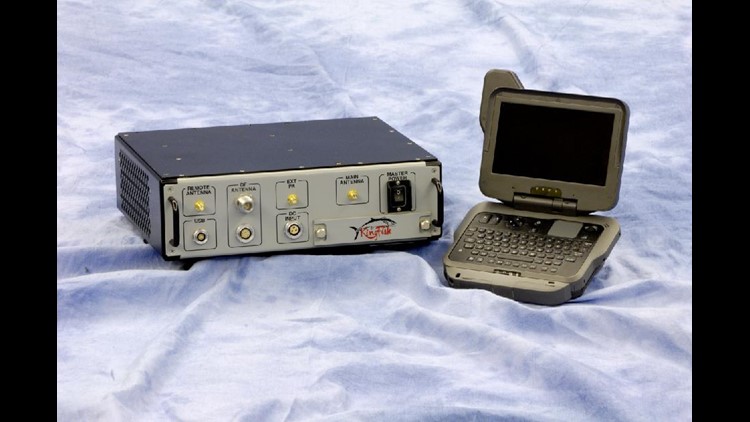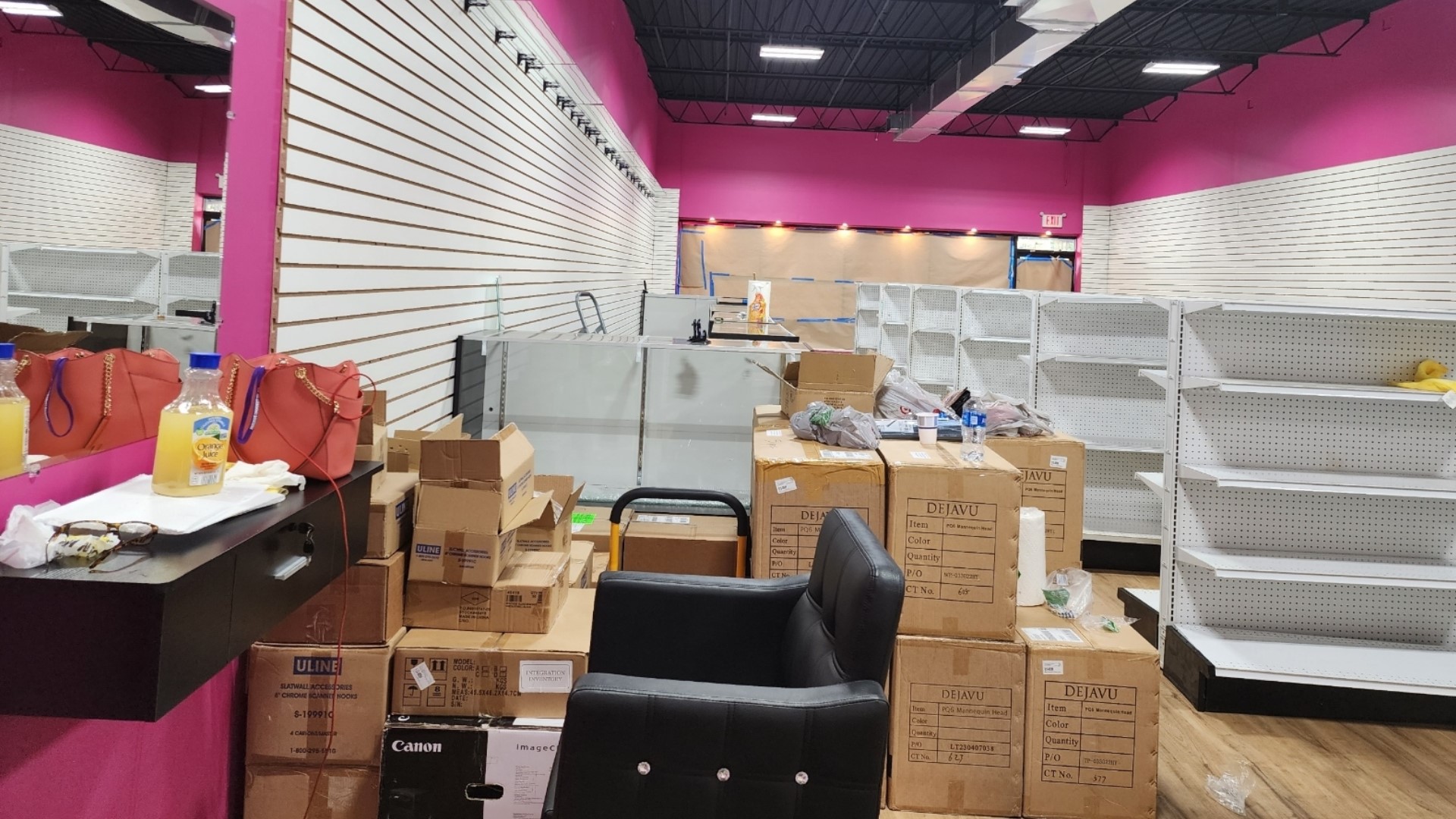GWINNETT COUNTY, GA – Your cell phone goes wherever you do, and now police can track your every move – without a warrant.
The 11Alive Investigators confirmed the Gwinnett County Police department is operating more than one 'Stingray' device. They're fake cell phone towers that can fit inside an unmarked surveillance van. Portable versions can be carried by detectives searching for suspects on foot.
"I think what people are most concerned about is this idea that prosecutors in particular out there dredging for information almost like a shrimp boat," said Gwinnett County District Attorney Danny Porter. "We're not that way. We hunt rather than fish. We have individual targets that are suspects in crimes and we use the data on that individual, and we don't look at anything else," Porter added.
But we have no way of verifying that claim because the entire program is shrouded in secrecy. Porter says he and other Georgia district attorneys get court approval before authorizing local police to track a cell phone, unlike other jurisdictions. Yet those court orders – less than warrants -- are sealed.
RELATED | FCC/Harris emails
RELATED | Emails from North Port, FL regarding concerns about the system
RELATED | 2010 invoice for purchase of Stingray equipment by Gwinnett Co. PD
The 11Alive Investigators discovered even criminal defense attorneys were unaware Gwinnett County Police were using fake cell towers here for years, in large part because that information was kept from them by prosecutors.
"Surprising wouldn't be the right word. It's shocking," said Robert Booker, a defense attorney in Gwinnett County. He had never heard of the Stingray or other cell tower emulators before we told him the county authorized spending more than $400,000 on the spy systems.
Booker believes the technology was used against one of his clients who was recently found not guilty. The defense attorney said phone records subpoenaed from cell company showed calls connecting to non-existent towers. "It had cell phone tower locations and various things in it that would have exonerated my client, and that's not what they put into evidence at trial, and I found that extremely suspicious," Booker said.
D.A. Porter told The 11Alive Investigators that a confidentiality agreement with Harris Corporation, the manufacturer of the Stingray, prohibits him and his assistant prosecutors from revealing the existence of the fake cell towers, even in a court of law. "Because of contractual obligations as well as certain other legal obligations," Porter said, "the disclosure of the existence of that cell tower emulator for location purposes is forbidden."
Porter said the manufacturer could repossess the machines or simply stop servicing them if the police and prosecutors revealed they were using them. He's one of the first prosecutors in the nation to go on the record talking about the existence of the Stingray, though he never mentioned the device or manufacturer by name in our interview.
The American Civil Liberties Union sued Florida authorities to unseal court testimony where an office revealed he had scanned dozens of phones behind closed doors in an apartment complex to reveal the location of a suspect. Police didn't get a warrant in that case and at least 200 other in one Florida city.
"We've seen police departments refusing to confirm or deny whether they have any records related to this technology, which is the kind of response we usually see from the NSA," said Nathan Wessler with the ACLU in New York. "It's a complete end-run around that whole concept of transparency. To make a secret agreement with a private corporation to hold back those records – that's just not allowed," Wessler added.
Harris Corporation told us to call local police when we called for comment. Gwinnett County Police referred us to the FBI, and also claimed an exemption from public records rules under a Georgia law that protects sensitive Homeland Security information. "But they're not being used for Homeland Security investigations," the ACLU's Wessler said. "They're being used for all the run of the mill investigations that our local police engage in, from homicide all the way down through robbery."
District Attorney Porter confirmed that criminal investigation is the primary use of the Stingray here. He said his office is changing its internal policy, and will soon file to unseal court orders approving the use of a cell tower emulator once the case heads to prosecution, but he still isn't telling defense attorneys he used a Stingray device.
"We tell you that we get a court a order that allowed us to ping the location of your phone. We don't tell you exactly how we did that," Porter said.
The US Supreme Court has not contemplated whether tracking the cell phones of citizens without a warrant is legal or not, because those being tracked aren't told, even after arrest and prosecution. According to defense attorney Robert Booker, "if you don't know about it, you certainly can't challenge it."
The Gwinnett County Police Department released a statement about the Stingray:
The possession and use of cell site simulators by law enforcement agencies has been of national interest in recent months. In light of recent inquiry, the Gwinnett County Police Department has prepared this statement.
The Gwinnett County Police Department (GCPD) does possess a cell site simulator, commonly referred to as "Stingray", which is manufactured by Harris Corporation. The cell site simulator is a particularly effective tool and has assisted greatly in keeping the citizens of Gwinnett County safe. There are widely held misconceptions about its uses, partly as a result of law enforcement in general not disclosing information on the devices. Law enforcement agencies must always balance informing the public on how law enforcement services are delivered with reducing the effectiveness of a tactic or tool in fighting crime. Releasing specific details on how it works and is used would allow criminals to circumvent the device; therefore technical information and specific applications must be kept confidential. In an effort to provide some transparency in this area, while also keeping the cell site simulator a relevant tool, GCPD is providing the following facts on what the device does and does not do.
What it does: The cell site simulator possessed by GCPD allows police to locate a lawfully targeted cellphone. The device does temporarily "catch and release" third-party cellphone information as a necessary part of searching for the lawfully targeted cellphone. A court order signed by a superior court judge is required before the device is used. This ensures judicial oversight on the use of the device. The exception to this rule is incidents with exigent circumstances, such as kidnappings or missing children.
What it does not do: The cell site simulator possessed by GCPD does not retain the third-party cellphone information that it encounters in the process of locating the targeted cellphone. The device does not create or feed any sort of database. Information evaluated or obtained by the cell site simulator is not kept or maintained by GCPD, state or federal government agencies, Harris Corporation, or any other person or entity. The device cannot identify the operator of a cellphone. It cannot intercept calls or texts, meaning the police cannot listen to calls or read text messages using this device. It cannot obtain any internet based data (email, instant messages, social media, etc.).
The cell site simulator is an excellent tool in GCPD's efforts to deliver the best law enforcement services and keep the citizens of Gwinnett County safe. With the greatest respect for citizens' privacy, GCPD will continue to use the device in a responsible manner.



